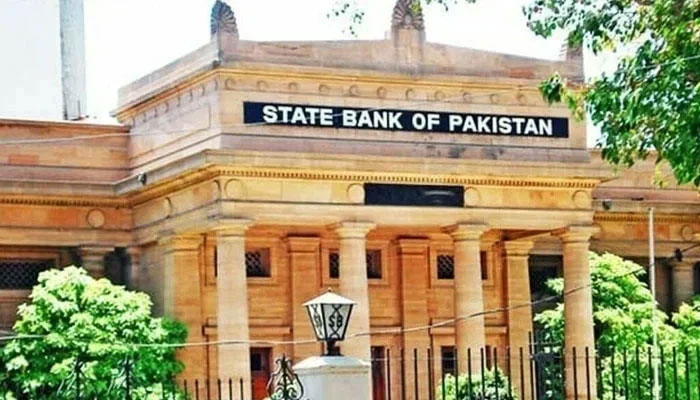SBP to integrate 9.3m BISP beneficiaries into digital economy with Sahulat Account
The facilitation framework has been developed in consultation with the BISP and banks
KARACHI: The State Bank of Pakistan (SBP) on Monday unveiled a new framework aimed at integrating approximately 9.3 million beneficiaries of the Benazir Income Support Programme (BISP) into the banking system, enabling them to receive social welfare payments directly into their accounts.
The facilitation framework has been developed in consultation with the BISP and banks.“Under the framework, about 9.3 million BISP beneficiaries will be able to open a “BISP Sahulat Account” in a single visit to the designated bank branch within their vicinity,” the SBP said in a statement.
The BISP has mapped its beneficiaries with a bank branch in the vicinity of the beneficiaries. However, given the large number of beneficiaries, the framework will be implemented in phases, it added.
Initially, a pilot phase will be run in Karachi and Lahore for onboarding about three hundred thousand (300,000) BISP beneficiaries. Post-successful implementation of the pilot phase, the framework coverage will be extended to other cities in consultation with BISP, according to the SBP.
“The framework is expected to facilitate disbursement of social welfare payments to BISP beneficiaries in an efficient and transparent manner, enhance women's financial inclusion, and promote digitisation of financial services,” it said.
Regarding the BISP beneficiaries' onboarding, The SBP stated in a circular that the banks will use a secure arrangement to obtain account opening information from BISP. This information will, at the very least, comprise the beneficiary's full name (as per CNIC), father's or spouse's name, CNIC number, date of birth, mobile number, and residential address. Moreover, BISP would confirm the validity of the beneficiaries' CNICs before providing information to the banks.
After receiving the information from BISP, banks will carry out screening of beneficiary’s particulars against the lists of persons designated by the United Nations Security Council (UNSC) and proscribed under The Anti-Terrorism Act, 1997 as well as other relevant lists, it said.
Post-screening, the banks will create accounts of beneficiaries in the branches identified by BISP. Thereafter, banks will generate the international bank account numbers of such accounts and share them with BISP, under a mutually agreed and secure arrangement. The BISP will disburse the fundsinto these accounts through RAAST, an instant payment system, and interbank funds transfer. According to the SBP, the banks will activate beneficiaries’ bank accounts, upon their visit to the relevant branch, through biometric verification with liveness checks. “During the pilot phase, BISP beneficiary accounts shall be limited mandate accounts primarily meant for receiving disbursements from the BISP,” it said. “Based on the results of the pilot phase, SBP may consider allowing normal operations in these accounts as permissible under branchless banking level 1 accounts.”
-
 Jessica Biel Urged To Divorce Justin Timberlake?
Jessica Biel Urged To Divorce Justin Timberlake? -
 Rebecca Ferguson Gets Honest About Having First Kid With 22 Year Older Man
Rebecca Ferguson Gets Honest About Having First Kid With 22 Year Older Man -
 Epstein Ties: UK Police Search Properties In Probe Into Peter Mandelson
Epstein Ties: UK Police Search Properties In Probe Into Peter Mandelson -
 Andrew Mountbatten-Windsor’s Friendship With A Child Sex Offender Turns His Future Murkier
Andrew Mountbatten-Windsor’s Friendship With A Child Sex Offender Turns His Future Murkier -
 Ben Affleck Sparks Concern With 'self-destructing' Behaviour
Ben Affleck Sparks Concern With 'self-destructing' Behaviour -
 Brooklyn Beckham’s Parents Leave Him Scorned With Ridicule With Nothing Left: Here's Why David's Panicked
Brooklyn Beckham’s Parents Leave Him Scorned With Ridicule With Nothing Left: Here's Why David's Panicked -
 Blake Lively 'snubs' Taylor Swift On Opalite Music Video Release
Blake Lively 'snubs' Taylor Swift On Opalite Music Video Release -
 Adam Sandler Breaks Silence On 'insane' Viral Chanel Story About His Daughter
Adam Sandler Breaks Silence On 'insane' Viral Chanel Story About His Daughter -
 Adam Sandler Makes Brutal Joke About Oscar Snub For 'Jay Kelly'
Adam Sandler Makes Brutal Joke About Oscar Snub For 'Jay Kelly' -
 Three Killed, Several Injured After Car Crashes Straight Into Los Angeles Supermarket
Three Killed, Several Injured After Car Crashes Straight Into Los Angeles Supermarket -
 Bianca Censori Hits Back At Kim Kardashian's Claims About Kanye West's Parenting
Bianca Censori Hits Back At Kim Kardashian's Claims About Kanye West's Parenting -
 George Clooney, Brad Pitt Say Goodbye To Heartthrob Era
George Clooney, Brad Pitt Say Goodbye To Heartthrob Era -
 Princess Anne Shares Video Message Ahead Of Olympic Winter Games
Princess Anne Shares Video Message Ahead Of Olympic Winter Games -
 Bad Bunny Reveals If He's Athletic As He Teases Super Bowl LX Halftime Show
Bad Bunny Reveals If He's Athletic As He Teases Super Bowl LX Halftime Show -
 Inside Jeffrey Epstein's Troubling Final Days Before Suicide
Inside Jeffrey Epstein's Troubling Final Days Before Suicide -
 Billie Eilish Criticized By 'other' Epstein Over 'stolen Land' Remarks
Billie Eilish Criticized By 'other' Epstein Over 'stolen Land' Remarks




